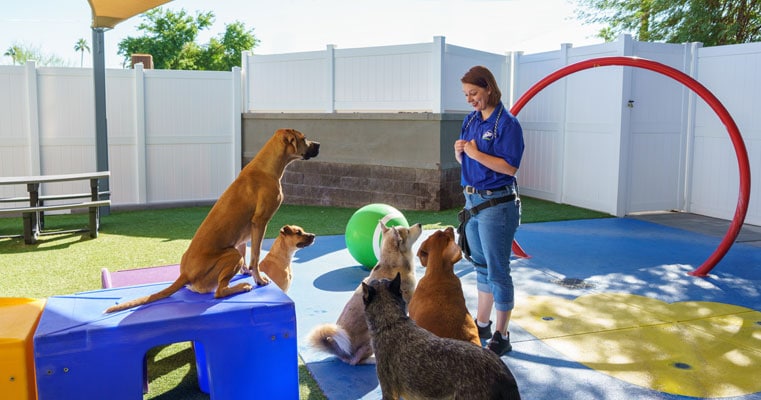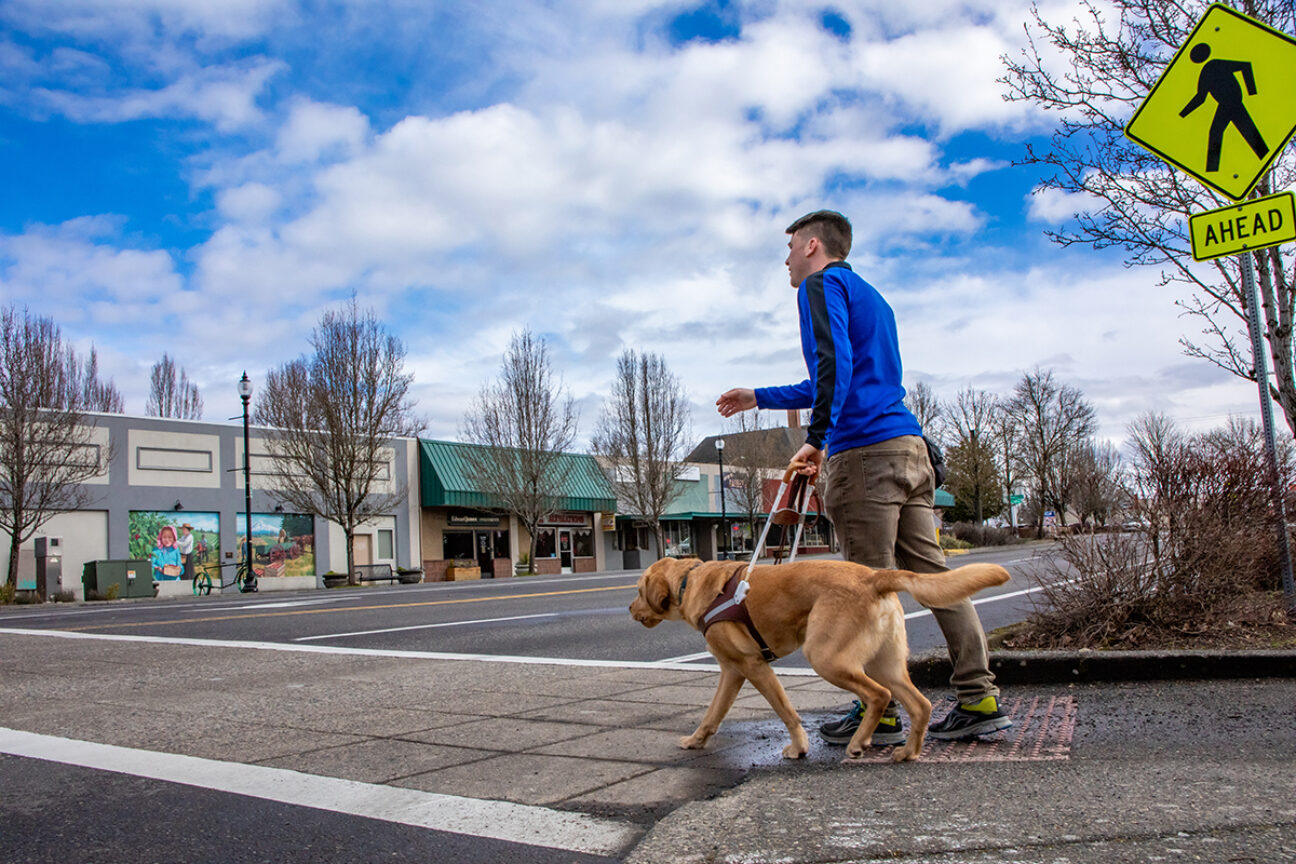Open the Secrets of Effective Dog Training Near Me for a Happier Pet
Open the Secrets of Effective Dog Training Near Me for a Happier Pet
Blog Article
Unlock Your Pet dog's Prospective: Proven Pet Dog Training Techniques for Success
Efficient dog training is a nuanced process that pivots on understanding canine behavior and utilizing scientifically backed methods. By including favorable support, establishing clear commands, and focusing on socialization, dog proprietors can grow a productive partnership with their pets.
Understanding Pet Actions
Recognizing dog habits is vital for effective training and cultivating a positive partnership between pets and their proprietors. An extensive understanding of canine body movement, vocalizations, and social communications is crucial for acknowledging their emotions and demands. Pets connect largely via non-verbal hints; for instance, a wagging tail may suggest enjoyment, while pinned ears can signal fear or submission.

Furthermore, ecological factors play a considerable role in forming a pet dog's behavior. Modifications in routine, brand-new environments, or the presence of unfamiliar people can result in tension or anxiousness in dogs. Acknowledging these triggers makes it possible for proprietors to alleviate unfavorable reactions and establish appropriate training strategies.
Ultimately, a deep understanding of pet dog habits lays the foundation for successful training techniques, enhancing both behavior and the total bond in between the pet dog and its proprietor. dog training charlotte nc. This knowledge is vital for promoting a well-adjusted, happy canine buddy
Positive Support Methods
Efficient training depends heavily on favorable support methods, which have actually been shown to yield significant cause shaping wanted habits in dogs. This method involves awarding a canine for showing particular habits, thereby increasing the likelihood that these actions will certainly be repeated. Incentives can take various kinds, including deals with, praise, toys, or play, depending on what motivates the individual pet dog.

It is vital to slowly terminate benefits as the canine learns the behavior, transitioning to intermittent support. This approach maintains the behavior over time while avoiding dependence on continuous incentives. By concentrating on positive support, fitness instructors can cultivate a relying on connection with their pet dogs, advertising a participating and healthy and balanced training setting that improves total obedience and efficiency.
Establishing Regular Commands
A basic element of successful pet training is the establishment of regular commands. Uniformity in commands is critical for efficient communication between the instructor and the pet dog. When commands are uniform, dogs find out to connect details words with wanted actions, which increases the training procedure and boosts understanding.
To develop consistent commands, it is important that all household participants use the exact same terms and gestures. As an example, if one person utilizes "rest" while another claims "rest down," it can produce confusion for the pet dog. Select clear, distinctive words for commands and ensure everyone associated with the pet's training abides by these choices.
In addition, repeating is vital. Strengthen commands through frequent technique, making certain that the pet receives adequate possibilities to respond correctly. When a dog successfully complies with a command, immediate favorable reinforcement needs to adhere to. This could be in the type of treats, praise, or playtime, strengthening the link in between the command and the action.
Finally, be client. Establishing constant commands takes time and effort. With devotion and clarity, you will certainly aid your canine develop a solid understanding of assumptions, ultimately causing a mannerly buddy.
Socialization and Exposure
Interacting socially a pet dog is important for cultivating a well-adjusted and positive buddy. This procedure entails subjecting your pet dog to a selection of environments, people, and various other pets to develop their social skills and versatility. Early socializing, preferably in between the ages of 3 to fourteen weeks, is vital, as it prepares for a canine's future habits.
During socialization, purpose to provide favorable experiences in different settings, such as parks, busy streets, and homes with other pets. Introduce your pet dog to different stimulations, consisting of noises, sights, and scents, guaranteeing that each encounter is rewarding. This direct exposure aids alleviate concern and anxiousness, leading the way for an extra resistant pet.
Engaging in regulated team play sessions with other canines can also boost social skills, showing your pet dog proper interactions and borders. Prioritizing socialization will considerably add to your canine's total happiness and behavior throughout their life.
Overcoming Common Training Obstacles

One more frequent problem is interruption. Pet dogs may have a hard time to concentrate in hectic or strange setups. Progressively desensitize your pet dog to interruptions by starting training in a peaceful environment and slowly introducing even more stimulations as they end up being efficient (Dog training). Favorable support methods, such as deals with and praise, can maintain find this inspiration and emphasis.
In addition, behavior concerns like jumping or extreme barking can become aggravating. Address these by teaching different actions, such as resting steadly when welcoming guests. Consistency he has a good point and persistence are critical; enhance preferred actions regularly and prevent abuse, which can lead to complication.
Lastly, recognize that each pet is unique, and training timelines might vary. Dressmaker your strategy to your dog's individual demands, and seek professional assistance if needed. With willpower and the ideal approaches, overcoming these challenges can lead to a trained, pleased canine buddy.
Final Thought
In final thought, unlocking a canine's prospective requires a comprehensive approach that includes an understanding of canine habits, the application of positive support techniques, and the facility of consistent commands. Early socialization and direct exposure to diverse environments better enhance a pet's flexibility and confidence. By resolving typical training difficulties with tailored techniques and perseverance, a harmonious and cooperative connection in between pet and handler can be fostered, ultimately causing a mannerly friend efficient in prospering in various situations.
Effective pet training is a nuanced procedure that hinges on comprehending canine actions and using medically backed approaches.Comprehending pet behavior is crucial for effective training and promoting a positive partnership in between pets and their Check Out Your URL proprietors.Effective training counts greatly on positive reinforcement strategies, which have actually been revealed to yield substantial results in forming desired actions in canines. When commands are consistent, dogs find out to associate specific words with preferred habits, which speeds up the training procedure and boosts understanding.
In final thought, unlocking a pet's possible demands a thorough technique that incorporates an understanding of canine actions, the application of favorable support strategies, and the establishment of regular commands.
Report this page